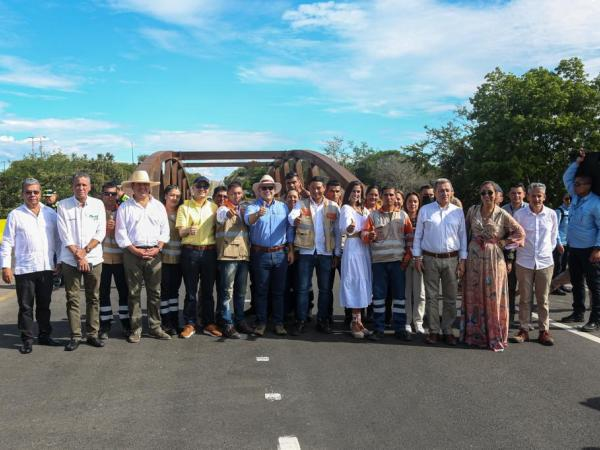“There is an issue that is the most complex of all, on which we did not have an agreement, water and the transition from water rights to authorizations,” said the Socialist Collective conventionalist and member of the Transitional Norms commission on Monday. , Tomas Laibe. He was referring to two articles that the center-left presented separately for the last vote on temporary norms in the hemicycle on Tuesday.
“There is a proposal from the Popular Bloc and another from the Broad Front (FA) and the Socialist Collective. We believe that our proposal gives much more certainty to the people who have water rights today that they are going to suffer a change in the regime of their authorizations. In any case, it is something that is being discussed between the groups, and we hope that it does not affect all the other provisions,” Laibe added on Monday.
Those who were part of the elaboration of articles of the center-left group assure that the transition from water rights to authorizations was one of the most critical points of the discussion between the Popular Bloc, made up of the Plurinational Coordinator, Constituent People and Reserved Seats , and the groups considered to be the most pro-government inside the former Congress, the Broad Front and the Socialist Collective. In this way they presented two separate indications.
The permanent norm on water dictates that “the authorizations for the use of water —which come to replace the right to water— will be granted by the National Water Agency, of a non-commercial nature, granted based on the effective availability of water, and will oblige the holder to the use that justifies its granting”.
Both propose that, if the new Constitution is approved and enters into force, all exploitation rights will be considered use authorizations. The main difference between the two indications is that the one presented by the Broad Front and the Socialist Collective —with the name of Jeniffer Mella (FA) as the first signatory— specifies that as long as the permanent regulations are not issued, or within the maximum term of three years from the entry into force of the Constitution, special rules will apply and one of those deals with the transfer of authorizations.
It establishes that the General Directorate of Waters (DGA) or its legal successor if the Constitution is approved, the National Water Agency (ANA), “may authorize changes of ownership in the administrative authorizations for water use or legal acts that imply that a person other than the owner exercises them, provided they are based on the satisfaction of the human right to water and sanitation, or the effective availability of water.
Conventional members of the Popular Bloc ensured that the three-year term for transfers could lead to the transfer of authorizations to “close” and thus the same owner continues to control rights, but does not have them officially.
While on Monday some socialists said that they would not vote in favor of the indication presented by the Popular Bloc, this Tuesday they assured that it is something that is being discussed with the other groups and that for now they would be ready to approve both so that later the commission of Harmonization fix the inconsistencies between both articles. This, according to socialist sources, for the fear that the groups of independents could reject fundamental transitory norms for them, such as those that have to do with the Constitutional Court and the judges.
-Why both the Socialist Collective and the Broad Front presented a separate indication from the one entered by the Popular Bloc in the transition from water rights to authorizations?
-We have a difference with the Popular Bloc’s proposal because we believe that greater certainty must be generated regarding what the permanent rule that we have already approved implies. There are several elements there, a discussion about levies and transfers. Transfers were discussed in the Environment committee and the original article spoke of the fact that water authorizations were not transferable, which was eliminated. But since it was not made explicit that they are transferable, the discussion revolved around making this explicit for the legislator’s mandate and for the regulatory adjustments that have to be made in the transition. We believe that ours is more complete, gives more legal certainty to those who have water rights and changes their water use regime. This new regime is much stricter, but requires certainties.
-Do you see a fragmentation within the center-left between an official group and independents caused by the discussions within the Transitory Norms commission?
-We have substantive differences that have been reflected throughout the process. That they have to do with discussions between minimalism and maximalism, about distrust of the legislator versus those of us who have more confidence in the institutions. These two axes have been transversal throughout the process. Clearly, when it comes to defining the transition, they are marked again, because there is a reality, there is a Congress with a certain political makeup, and an Executive of a certain color. But I do believe that we have been able to reach a balance in these agreements in the sense of accelerating certain matters that seem to us to be priorities, but also allowing Congress and the Executive to evaluate what other projects they also want to present. And that it be the institutions themselves who adapt their rhythms without an express mandate in transitory provisions.
-The Popular Bloc emerged in the discussion of Transitory Norms?
-The Popular Bloc comes from before. In Fundamental Rights they were named like this, because it was the commission that most clearly set the poles and ordered the ideological forces more clearly. The Socialist Collective, Broad Front and Independents for a New Constitution (INC) were a coordinated political force, and the rest was the Popular Block. And these two forces came together to try to reach an agreement. But there the two blocks were armed.
-Within Transitories has the PC been in more conversations with you?
-The Socialist Collective has always had bilaterals with the PC. Indeed today we are Government and we have common interests. That the Government does well, that there can be a good implementation, that has reinforced a dialogue not only bilateral but also between the forces that are in the Government.
In Transitory is where these three forces have been most clearly present, Broad Front, Chile Digno (independents, Communist Party and Social Green Regionalist Federation) and us (Socialist Collective), because we are looking at the transition and implementation, which is clearly the responsibility of our Government.
On the one hand, we have the responsibility that the transition be orderly, but if there are certainties regarding the deadlines and when certain things will happen, and we suddenly have differences with the other forces in relation to the amount of pressure that can be put on the Government and Congress in the implementation. Because we understand that this is a complex process. So one cannot prioritize all the matters that are in the Constitution as elements that must be processed in the first years from the entry into force of the Constitution. Because there is a material issue that makes it difficult.
-Did the most pro-government group seek minimalism in the creation of the transitory provisions?
-Clearly, those of us who were part of the government forces were seeking not to set deadlines for each of the constitutional provisions, but rather to define priorities that made sense to all of us. And that is why we reached an agreement in which we said, of all the fundamental rights, we are going to concentrate on the systems. In the National Education System, in the National Health System, the Social Security System, and there we are going to define deadlines. For the rest, the general rule applies: four years of regulatory adaptation.
-In the first proposal five years were set, the conventional groups made up of independents and social movements wanted three years, was a midpoint reached?
-We raised five years, because we believe that a government is a reasonable expectation. But it is necessary to go a little beyond the Government in the sense that it is likely that a good part of the legislation and regulations will be adapted in this Government, but seeing other constituent processes it is always overcome, it is more than one Government. So a term of five years seemed reasonable to us, but we also understand that there are necessary certainties on the part of the conventionalists who are here and who are not represented by the institutions, and who wanted to speed up those terms a little. That’s why we reached four years.









